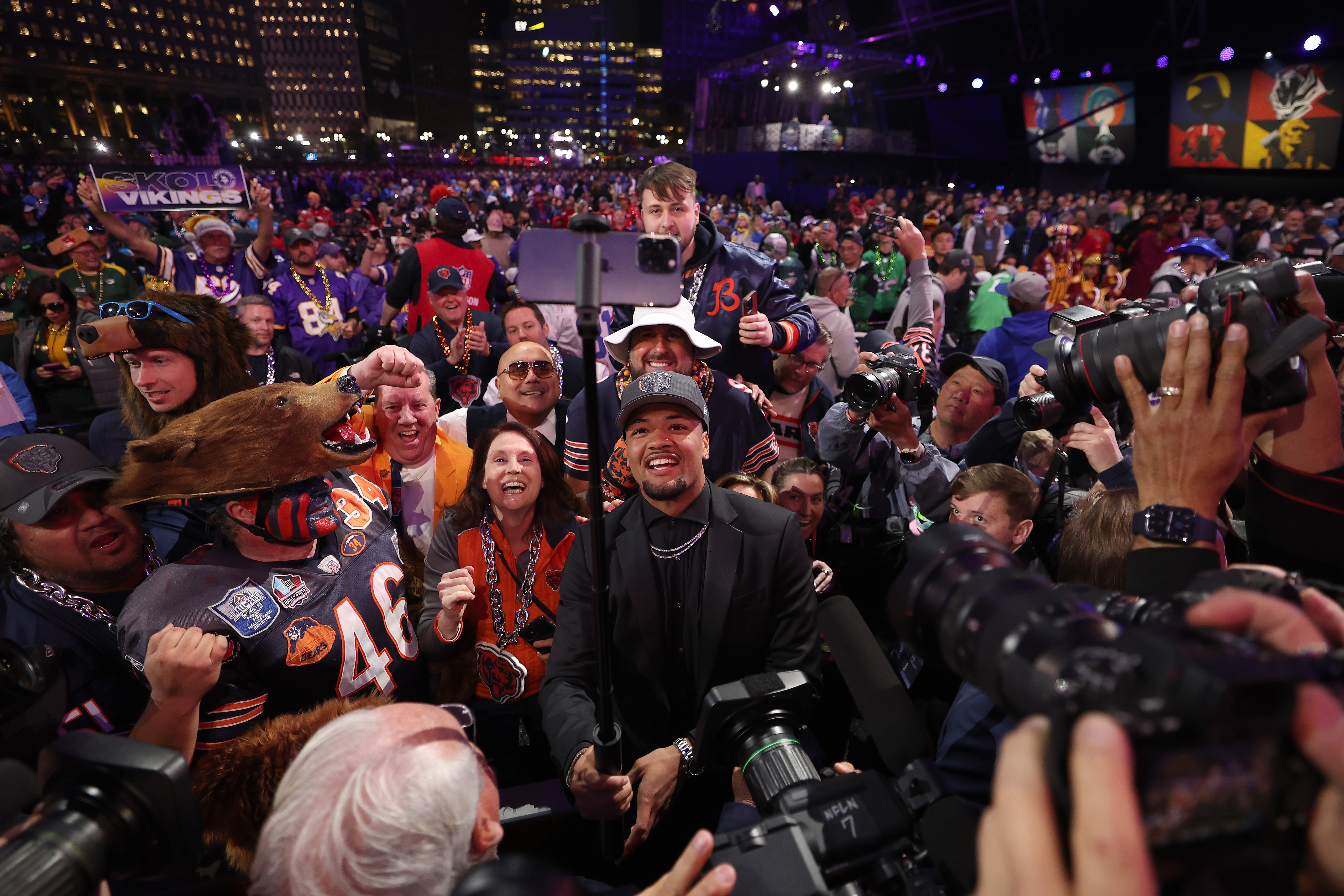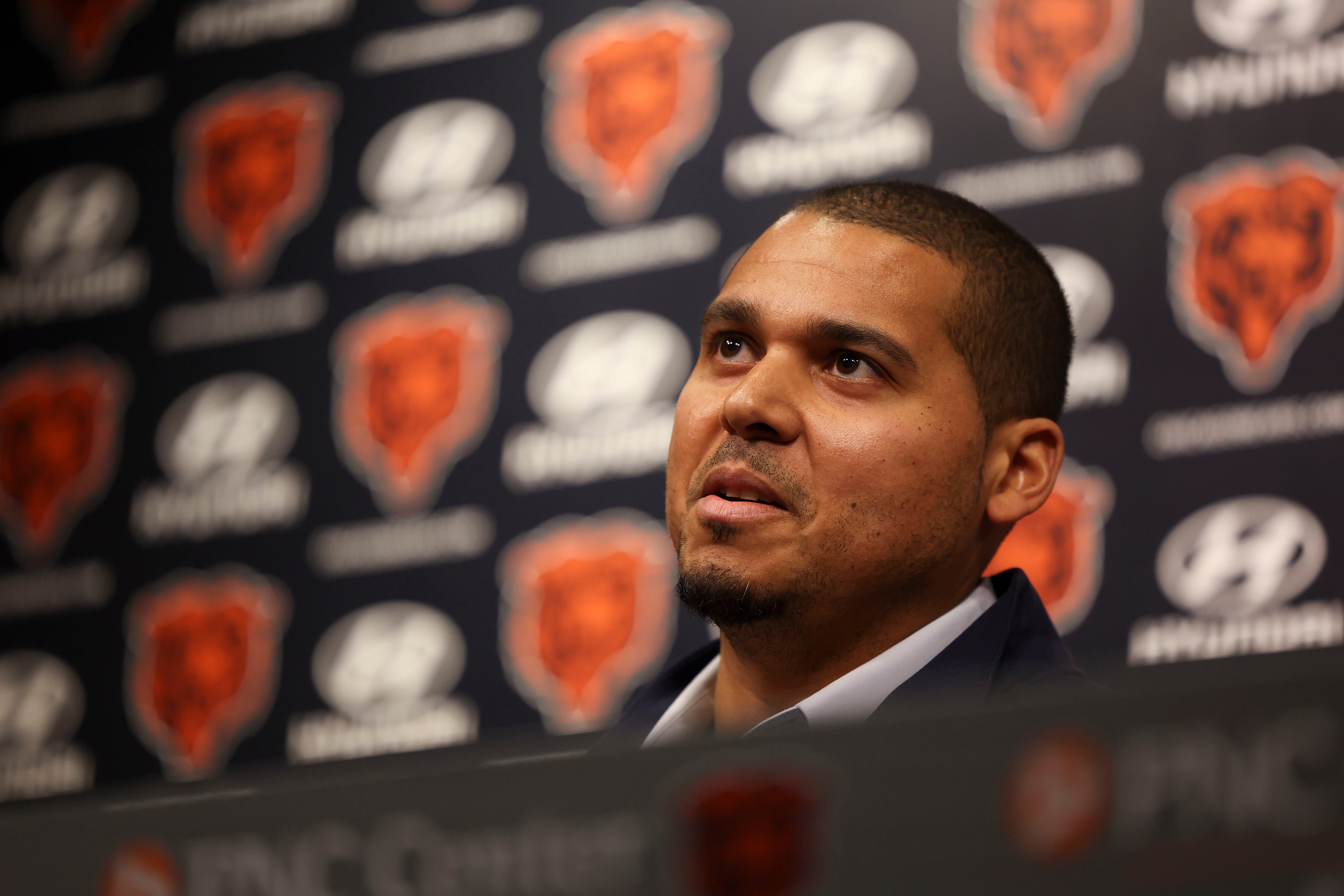
With the Cubs struggling to find any consistency at the plate or in the field early this season, some fans are already writing it off as a rebuilding year while other more hopeful North-Siders are pleading for change from their new president, Theo Epstein.
The Cubs' front office has already dealt Marlon Byrd for some bullpen help in Michael Bowden, but perhaps some ingredients to the long-term recipe already lie within the organization.
Although the Cubs' minor league system has been deemed middle-of-the-pack at best, don't be surprised come July if the lineup is filled with a number of fresh faces. Having waited for 103 years, some Cubs fans are urging Theo to pull the trigger on call-ups sooner rather than later. But I wouldn't be so quick to jump the gun for a number of reasons.
Stay in the game with the latest updates on your beloved Chicago sports teams! Sign up here for our All Access Daily newsletter.
It should not be assumed that due to the trade of Marlon Byrd, Iowa Cubs center fielder Brett Jackson will be called up anytime soon. Jackson boasts a less-than-stellar .233 average at the AAA level and his overall stats don't exactly scream that he is ready for the majors.
Jackson entered the season as Baseball America's 32nd-ranked minor league prospect, but he has yet to back up any of his preseason hype. He is a multiple-tool player that has big-time potential -- both at the plate and in the outfield -- but a great deal of polishing needs to be done before Cubs management can even think about giving Jackson his shot.
Another call-up better off delayed is that of Anthony Rizzo. Unlike Jackson, the big first baseman is absolutely tearing it up in Iowa right now. Rizzo's .378 average, 7 home runs and .671 slugging percentage all point to his being ready to play at the Friendly Confines, but his brief major league stint in San Diego last summer means they Cubs need to proceed with caution before they give him a second shot at the big leagues.
Last year, Rizzo had 128 major league plate appearances and only 18 hits with the Padres. His .141 average was reason enough to be sent back down before he was traded to the Cubs in a deal for Andrew Cashner. Rizzo could be one of the "impact bats" Epstein is looking for, but the earliest we will probably see him in Chicago is late June.
News
Service time is something that the Cubs management team is very conscious of because it starts a players clock towards arbitration and free agency and with the parent club nowhere near ready to contend, there is no reason to rush players to the big leagues.
A third prospect who we have seen in small doses is Tony Campana. He is now getting his chance to play on a regular basis, but the jury is still out as to whether or not he will ever be more than just a speedster and backup outfielder. He has gotten off to a solid start since his recall, but most scouts that I have spoken to do not believe he can ever be an everyday player on a contending team. With his speed, he can play a role both as a defensive replacement and as a spot starter but internally, the Cubs are looking for Jackson to become the long term answer in center field.
If you are a Cubs fan looking for a quick fix or the one guy who can make this team a contender, it's not going to happen. The key to Theo and Jed Hoyers process is patience. I know that is the last word any Cubs fan wants to hear, but you can't build a skyscraper without a foundation and right now, the foundation is still in the building process.
In 2004-05, Epstein retooled a Red Sox team that won their first World Series title in 86 years in the 2004 Fall Classic. Three years later, he was raising his second World Series trophy with a largely homegrown team. The key was successful drafts, which is something he and Senior VP of Scouting and Player Development Jason McLeod have yet to have the opportunity to do in Chicago.
With the proper amount of time, Epstein and his staff are more than capable of drafting and developing a core of players that have the ability to take the Cubs to the next level, but it is a process that will require multiple off-seasons. It will also require a commitment from ownership to stay the course no matter how painful the process may become at times. That commitment was something that was promised to Epstein when he accepted the challenge of rebuilding the Cubs and Tom Ricketts and Co. have said that they will not waver in their belief that building through the farm system is the correct way to go.
Another key component to the rebuild is making intelligent decisions that have an eye on the future as opposed to short-term thinking that only focuses about the present and near future. When the Cubs brought Starlin Castro up to the big leagues in May of 2010, it was a decision that gave no thought to the long-term best of the organization.
Was Castro ready to play in the big leagues at that time? Obviously he was offensively, judging by his outstanding production since his promotion. However, had the Cubs waited just four more weeks, they would have added another year of control on Castro because he would have been short on service time in the arbitration process.
According to several scouts I spoke with, the decision to promote Castro sooner than they should have will end up costing the Cubs between 7-10 million during his four arbitration years that would have been only three had the Cubs waited just those few weeks.
Around baseball, it was a decision that was met with exasperation because unlike the Washington Nationals who just promoted their top prospect Bryce Harper to the big leagues, the 2010 Chicago Cubs were not built to win. They were destined to finish out of contention, so promoting Castro made no sense.
That type of thinking will not continue under Team Theo because unlike the previous regime headed up by Jim Hendry, Epstein and Jed Hoyer and the rest of their team are not in the win-now and win-at-all-costs mentalities that contributed to the Castro decision.
Joe Musso contributed to this article.


